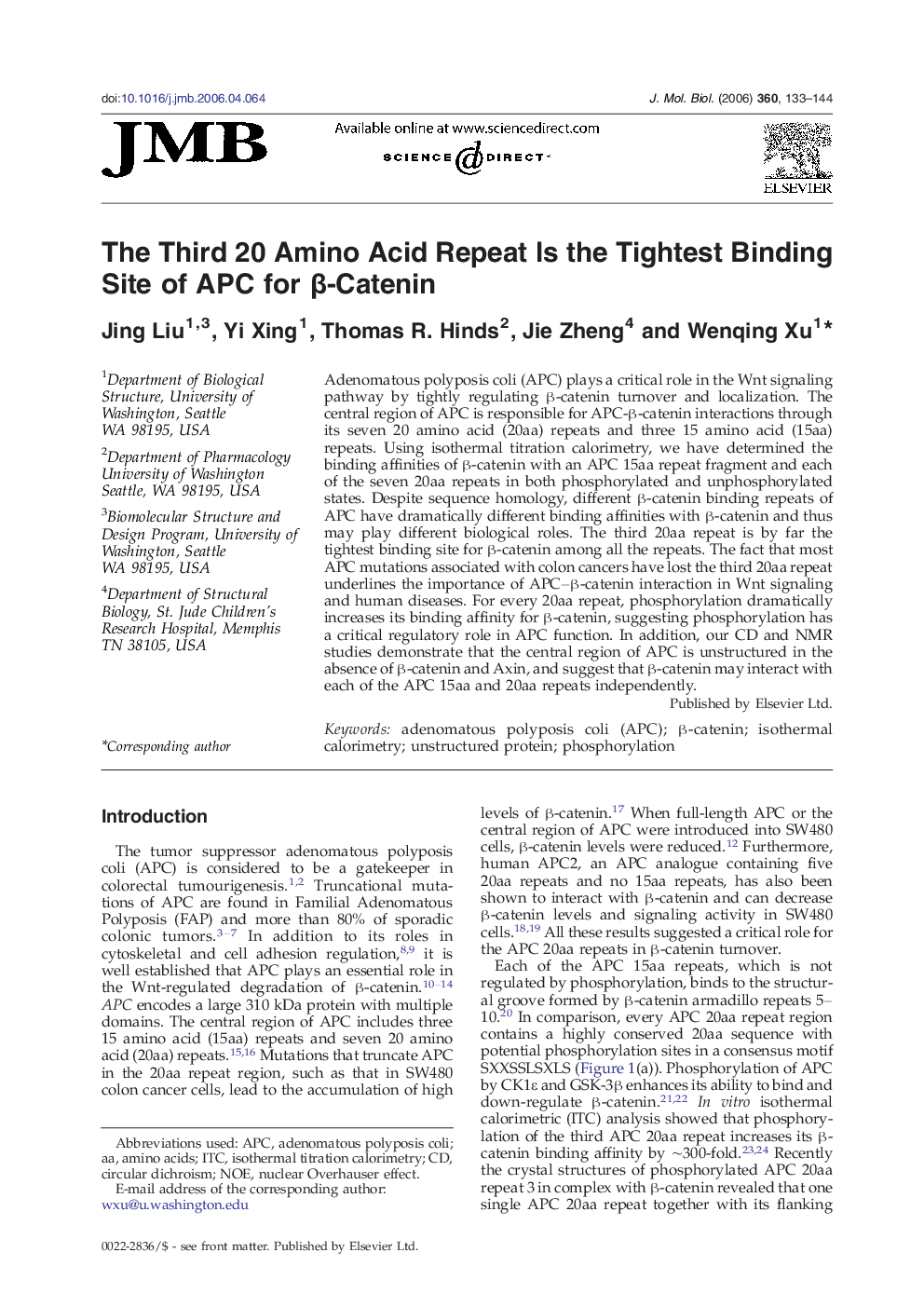| Article ID | Journal | Published Year | Pages | File Type |
|---|---|---|---|---|
| 2189585 | Journal of Molecular Biology | 2006 | 12 Pages |
Adenomatous polyposis coli (APC) plays a critical role in the Wnt signaling pathway by tightly regulating β-catenin turnover and localization. The central region of APC is responsible for APC-β-catenin interactions through its seven 20 amino acid (20aa) repeats and three 15 amino acid (15aa) repeats. Using isothermal titration calorimetry, we have determined the binding affinities of β-catenin with an APC 15aa repeat fragment and each of the seven 20aa repeats in both phosphorylated and unphosphorylated states. Despite sequence homology, different β-catenin binding repeats of APC have dramatically different binding affinities with β-catenin and thus may play different biological roles. The third 20aa repeat is by far the tightest binding site for β-catenin among all the repeats. The fact that most APC mutations associated with colon cancers have lost the third 20aa repeat underlines the importance of APC–β-catenin interaction in Wnt signaling and human diseases. For every 20aa repeat, phosphorylation dramatically increases its binding affinity for β-catenin, suggesting phosphorylation has a critical regulatory role in APC function. In addition, our CD and NMR studies demonstrate that the central region of APC is unstructured in the absence of β-catenin and Axin, and suggest that β-catenin may interact with each of the APC 15aa and 20aa repeats independently.
